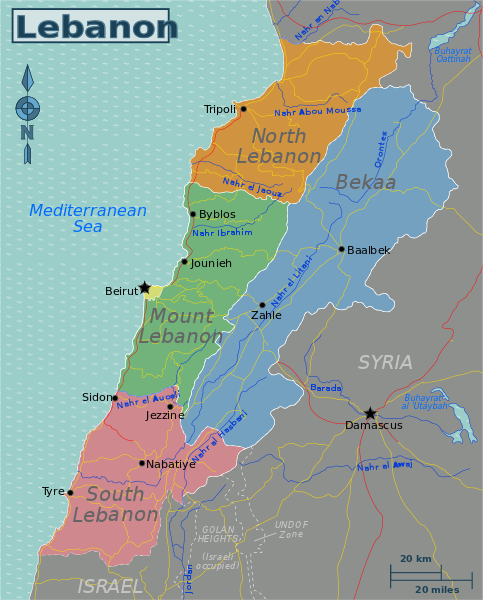Massive chemical blast shocks Beirut, Lebanon

Map of Lebanon (Wikimedia Commons)
November 6, 2020
On Oct. 4, Lebanon was shaken as 2,750 tons of ammonium nitrate exploded in the port of Beirut. The explosion killed 2000, injured 5,000, and left 300,000 temporarily homeless. It caused massive damage, leaving a 140 meter wide crater, with a 2,000 meter radius.
These damages could cost up to $10-15 billion, which is on top of Lebanon already struggling with an annual GDP growth rate of -5 percent, and 152 percent debt to GDP ratio. Lebanon has been struggling for years to come ahead of its debt, and it’ll be even worse with this crippling disaster.
David Elu, Archbishop Riordan’s AP Economics teacher, said Lebanon doesn’t have many options. Despite being a coastal country, “it’s not a big manufacturer.” So it doesn’t receive much revenue from exports or export much. He deduced it “needs capital to manufacture,” as in investment from outside businesses coming in to set up shop and stimulate their market.
Lebanon’s government and the area are actually great for businesses to come in, as its market is very free, and the government is willing to support new businesses.
However, Elu said that Lebanon suffers from the “Middle Eastern Problem” where many Middle Eastern countries are viable for businesses to come in, but said businesses are not confident enough to invest.
As many of these countries have a history of conflict, and are struggling economically, businesses feel that their investment will not be protected. If a fight or war breaks loose, how can the government protect their investment? It’s very likely they’ll be negatively impacted in some way. Lebanon needs to find some way to make businesses feel confident to move in, but with this recent Lebanon explosion, it’ll be even harder.
